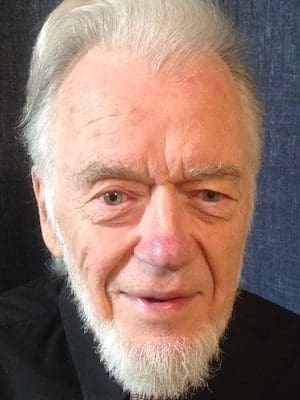The death of the famous Trappist monk Thomas Merton on Dec. 10, 1968, was tragic.
Born in 1915, Merton had gone to Thailand for an interfaith conference between Catholic and non-Christian monks, a meeting held in a Red Cross Conference Center in a suburb of Bangkok.
While stepping out of his bath in the cottage where he was staying, Merton reached out to adjust an electric fan, apparently touching an exposed wire, and was accidentally electrocuted. A tragic loss of life at age 53.
Merton died 27 years to the day after entering the Abbey of Gethsemani in Kentucky, south of Louisville. That was just three days after, but not directly related to, the bombing of Pearl Harbor.
He became well known through his bestselling autobiography, which is mostly about his life before entering the Trappist monastery.
“The Seven Storey Mountain,” Merton’s story of his early life, was first published in 1948 when he was only 33 years old.
By May 1949, 100,000 copies were in print, and that year it became the first religious book to make the New York Times bestseller list. The cover of the 1978 edition I just finished reading proclaims that over one million copies have been sold – and that was 33 years ago.
“25 BooksEveryChristianShouldRead: AGuidetotheEssentialSpiritualClassics” was published earlier this year, and Merton’s autobiography was the 23rd of those 25 books.
It was followed by C. S. Lewis’ “Mere Christianity” (1952) and Henri Nouwen’s “The Return of the Prodigal Son” (1992).
In much of “The Seven Storey Mountain,” Merton describes his rather unhappy childhood and young manhood. He narrates how he lived a rather undisciplined life, mainly seeking pleasure. But he didn’t find peace and contentment.
After a year at Cambridge University he wrote, “… all my dreams of fantastic pleasures and delights were crazy and absurd, and … everything I had reached out for had turned to ashes in my hands, and that I myself … had turned out to be an extremely unpleasant sort of person – vain, self-centered, dissolute, weak, irresolute, undisciplined, sensual, obscene and proud” (p. 132).
From this confession we see that Merton’s story is similar in some ways to that of Augustine. Accordingly, Merton’s autobiography is often compared to Augustine’s “Confessions,” the second work listed in “25 Books” mentioned above.
To be honest, I enjoyed reading Daniel Berrigan’s autobiography, “To Dwell in Peace,” much more than Merton’s “The Seven Storey Mountain.”
That was mainly, I think, because Berrigan was exactly twice as old as Merton when he wrote his autobiography and included much about his many experiences as a peace activist. How I wish Merton had lived to write another autobiography in 1981, when he would have been 66 years old.
Beginning on Jan. 1, I plan to start reading “Through the Years with Thomas Merton: Daily Meditations from His Writings” (1983). At some point, one of those meditations will surely be Merton’s words that I have often quoted:
“If you love peace, then hate injustice, hate tyranny, hate greed – but hate these things in yourself, not in another” (“New Seeds of Contemplation,” 1961, 2007; p. 122).
LeroySeat was a missionary to Japan from 1966-2004 and is both professor emeritus of Seinan Gakuin University and pastor emeritus of Fukuoka International Church. This column appeared previously on his blog.
A missionary to Japan from 1966-2004, he is both professor emeritus of Seinan Gakuin University and pastor emeritus of Fukuoka International Church.

